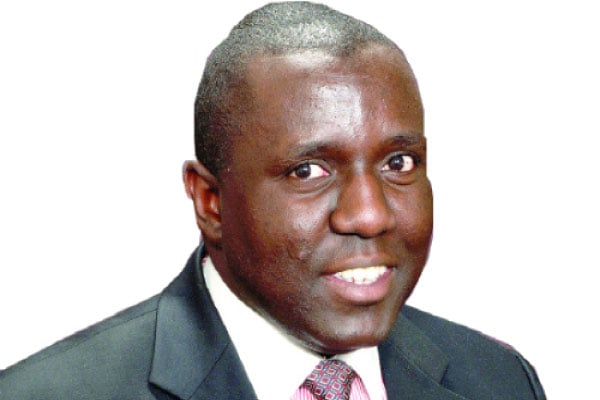Prime
Miracles of 2021, as the old year passes

Author: Mr Karoli Ssemogerere is an Attorney-at-Law and an Advocate.
What you need to know:
The discussion in Uganda and Africa in 2022 will be people, food and natural resources.
The young republic will turn 60 next October. Soon 50 million people will live inside its borders, four times the population 40 years ago. These 50 million people live in a unitary republic albeit one with shades of its patrimonial past (alongside kings and chiefs from the ancient communities in Uganda written into its Constitution). The Republic of Uganda has a unicameral legislature, 529 Members of Parliament, a unified Judiciary with three superior courts. The capital Kampala is a special administrative unit with special provisions in its constitution. The official language is English, 60 or more languages are spoken inside Uganda. The largest tribe, the Baganda of central Uganda are about 17 per cent of the country’s population, the largest regional bloc comprises of the western-south western block followed by eastern Uganda. Northern Uganda compensates in territory what it doesn’t have in population.
The demographics of Uganda are perhaps even more complicated by its fragmented religious base. The only faith block that is not growing in Uganda are atheists. Christians, Muslims and Animists are on the rise in all forms. In fact, in pluralistic Uganda, even religious clergy pay homage to traditional healers and shrines. Public figures too often do the same. A former vice president and former Speaker of Parliament have publicly visited shrines. The President signs off his appointments …..in the year of our Lord…but he too has mentioned that in the bush days, they had to turn to the animists to guide the struggle.
In 2021, these forces continued to dominate the national psyche, organised religion, idolatry and identity politics. The January 2021 presidential election ended in similar fashion to all elections since 1980, highly contested, polarised and yet by June when Parliament took office, all the dust of the campaign period and pre-election violence had died out. In a fashion similar to the Finance minister’s famous description of the economy as being on an upward trajectory, Covid mortalities and hospitalisations creeped up in April and May, forcing the country into a 42-day lockdown. Unlike the first Covid-19 episode, the second wave elicited a national panic, shed light on a crumbling health infrastructure, forcing government for the first time to attempt to regulate prices in the health sector.
Schools have remained closed in 2021 and two weeks ahead of reopening in January 2022 (Uganda), perhaps the only country whose schools remain closed since 2020.
The rains tapered off but the country still had enough food. The writing is on the wall that pressure for ground water will increase as irrigation becomes a necessity in many parts of the country. The avalanche in coffee prices has come on the back of declining coffee yields, diminishing a rare opportunity to boost wealth creation in the sector. Low cost/low input Uganda found itself in 2021 in near bare knuckled trade wars with many of her neighbours, Kenya, Tanzania and Rwanda. Rwanda for starters maintains a closed border to cross-border trade. Uganda’s milk, sugar, maize and other products have faced blockages, tariff barriers from the Kenyans. It’s a miracle why some of these matters have not been taken up by the East African Community Competition Authority. East Africa Ministry, not one to lose sleep over a fight, has justified retaliatory measures, blocking Kenyan exports forgetting Kenya is Uganda’s largest single trading partner.
Uganda’s miracles continue. Smog rich vehicles continue to ply our roads, where we drive geriatric motors alongside electric buses and now a few hybrid vehicles have reached Uganda. Maybe for starters, the Ministry of Energy responsible for both petroleum and electricity should direct that all petrol stations set up charging booths for electric vehicles.
The big oil investment decision was made in 2021, and many actions are expected in 2022, and by some forecasts up to $8 billion in the first year post investment decision. This news has kept the local unit miraculously strong. The shilling ended 2021 in the 3,500 range up from 3,900 in the first quarter of 2020.
Some random terrorist attacks and military action in the DRC without parliamentary approval closed out the defence and national security front. After a lull, ISIS has assumed a new dimension entrenchment in natural resource rich Congo and Mozambique, away from old hotbeds, Somalia and the Horn of Africa. The discussion in Uganda and Africa in 2022 will be people, food and natural resources.
Mr Ssemogerere is an Attorney-At-Law and an Advocate. [email protected]




